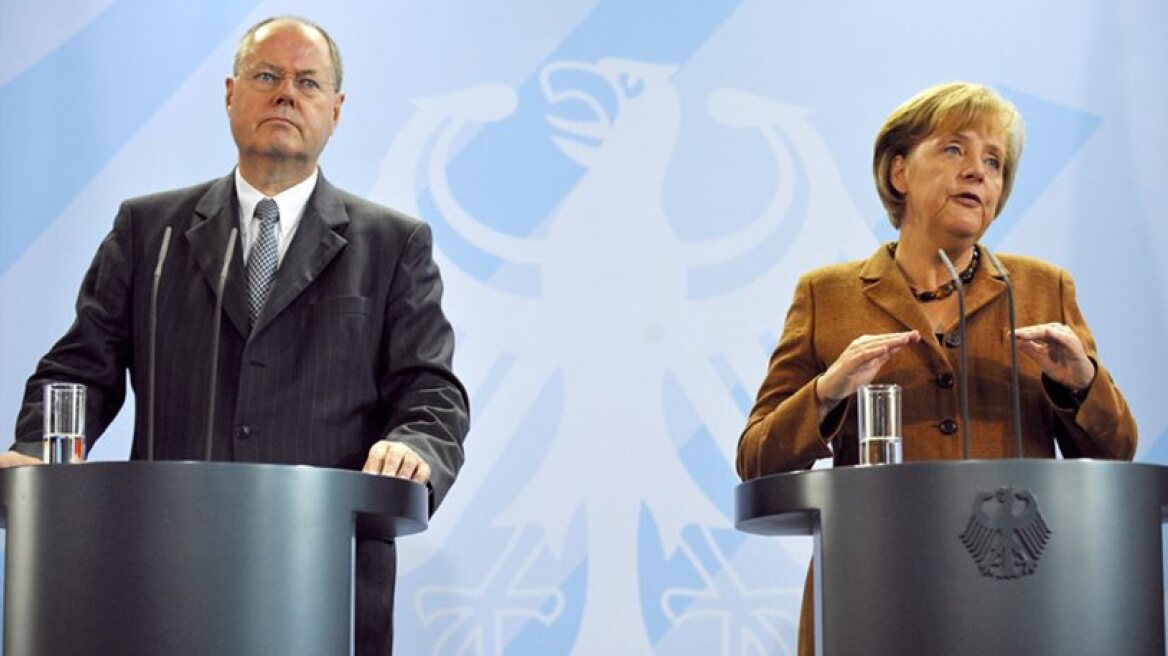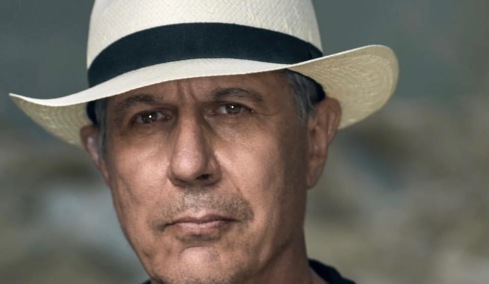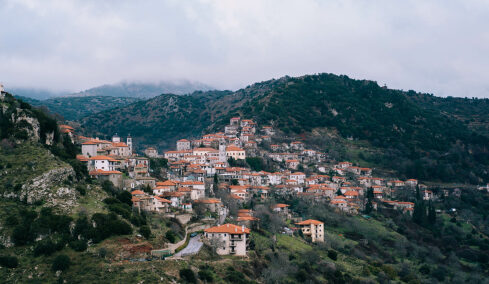
Chancellor seeks political partner: Triumphant Merkel, but without self-reliance
Chancellor seeks political partner: Triumphant Merkel, but without self-reliance
Likely cooperation with Steinbrück’s Social Democrats - No attempt at a minority government - Philipp Rösler may resign

Angela Merkel touched political self-reliance, something that hadn’t been done since 1957 and Konrad Adenauer, without managing to make history. She is now in an advantageous position and will try to work with either SPD or with the Greens.
"Chancellor seeks political partner" is the title of the Berliner Zeitung, while the Suddeutsche Zeitung writes "now Merkel has only to choose." Despite her widespread electoral victory, negotiations with prospective partners may not be pleasant. CDU/SPD or CDU/Greens, "neither of these two options are comfortable," Die Zeit comments. In SPD "nobody wants an alliance with Merkel" because "it will not be an equal one" and "is likely to end like 2009 or worse", Der Spiegel writes referring to the election results of 2009, when SPD recorded the lowest rate in postwar history, after co-governing within the bigger coalition under Merkel. As for the possibility of cooperation with the Greens, the limited attempts to set up such a coalition at a local level have failed.
Although German voters voted against the far right, far left and europhobic parties Merkel's triumph is not going to be a revolution for Europe.
With polls recording that most Germans consider Sparpolitik as the proper policy to be followed by the troubled economies of the South, the new coalition government, either between the CDU/CSU and SPD, or the Greens, will not change much of Germany’s European agenda.
Before the federal elections most estimates showed that a potential coalition between the CDU/CSU and SPD would mean that Finance Minister Wolfgang Schaeuble would have been be replaced by the Executive Board member of the European Central Bank Jörg Asmussen, but this possibility has almost disappeared after Merkel’s win.
Merkel: I will not retire from politics
"Chancellor seeks political partner" is the title of the Berliner Zeitung, while the Suddeutsche Zeitung writes "now Merkel has only to choose." Despite her widespread electoral victory, negotiations with prospective partners may not be pleasant. CDU/SPD or CDU/Greens, "neither of these two options are comfortable," Die Zeit comments. In SPD "nobody wants an alliance with Merkel" because "it will not be an equal one" and "is likely to end like 2009 or worse", Der Spiegel writes referring to the election results of 2009, when SPD recorded the lowest rate in postwar history, after co-governing within the bigger coalition under Merkel. As for the possibility of cooperation with the Greens, the limited attempts to set up such a coalition at a local level have failed.
Although German voters voted against the far right, far left and europhobic parties Merkel's triumph is not going to be a revolution for Europe.
With polls recording that most Germans consider Sparpolitik as the proper policy to be followed by the troubled economies of the South, the new coalition government, either between the CDU/CSU and SPD, or the Greens, will not change much of Germany’s European agenda.
Before the federal elections most estimates showed that a potential coalition between the CDU/CSU and SPD would mean that Finance Minister Wolfgang Schaeuble would have been be replaced by the Executive Board member of the European Central Bank Jörg Asmussen, but this possibility has almost disappeared after Merkel’s win.
Merkel: I will not retire from politics
The German chancellor denied the rumors that that she is planning to retire from politics in the middle of her next four-year term in the post. "What more can I say? Do you not believe my denials? Staying in this place for four years is a matter of responsible behavior towards my constituencies. I look at the next four years before me. I'm not in a position tonight to think about anything else beyond this period up to 2017."
Philipp Rösler may resign
The europhobic parties in Germany suffered an overwhelming defeat. The debacle of Philipp Rösler’s Free Democrats may lead to the resignation of both himself and Rainer Brüderle. The neo-Nazi party of Germany received only 1.43% with the highest rates being recorded in the former East Germany, where leftist voters in the former communist regions voted for neo-Nazis and the far-left party (Die Linke).
As much as the German elections involve all European citizens the most important issues for the future and the survival of the EU will be dealt with in the first half of 2014 with the European elections and a new European Commission, the president of which will elected for the first time on the basis of the preferences of European citizens.
During the same period Britain will hold a referendum on its stay in the EU and Greece will hold the presidency of the European Council.
Ακολουθήστε το protothema.gr στο Google News και μάθετε πρώτοι όλες τις ειδήσεις
Δείτε όλες τις τελευταίες Ειδήσεις από την Ελλάδα και τον Κόσμο, τη στιγμή που συμβαίνουν, στο Protothema.gr
Δείτε όλες τις τελευταίες Ειδήσεις από την Ελλάδα και τον Κόσμο, τη στιγμή που συμβαίνουν, στο Protothema.gr
ΡΟΗ ΕΙΔΗΣΕΩΝ
Ειδήσεις
Δημοφιλή
Σχολιασμένα






































